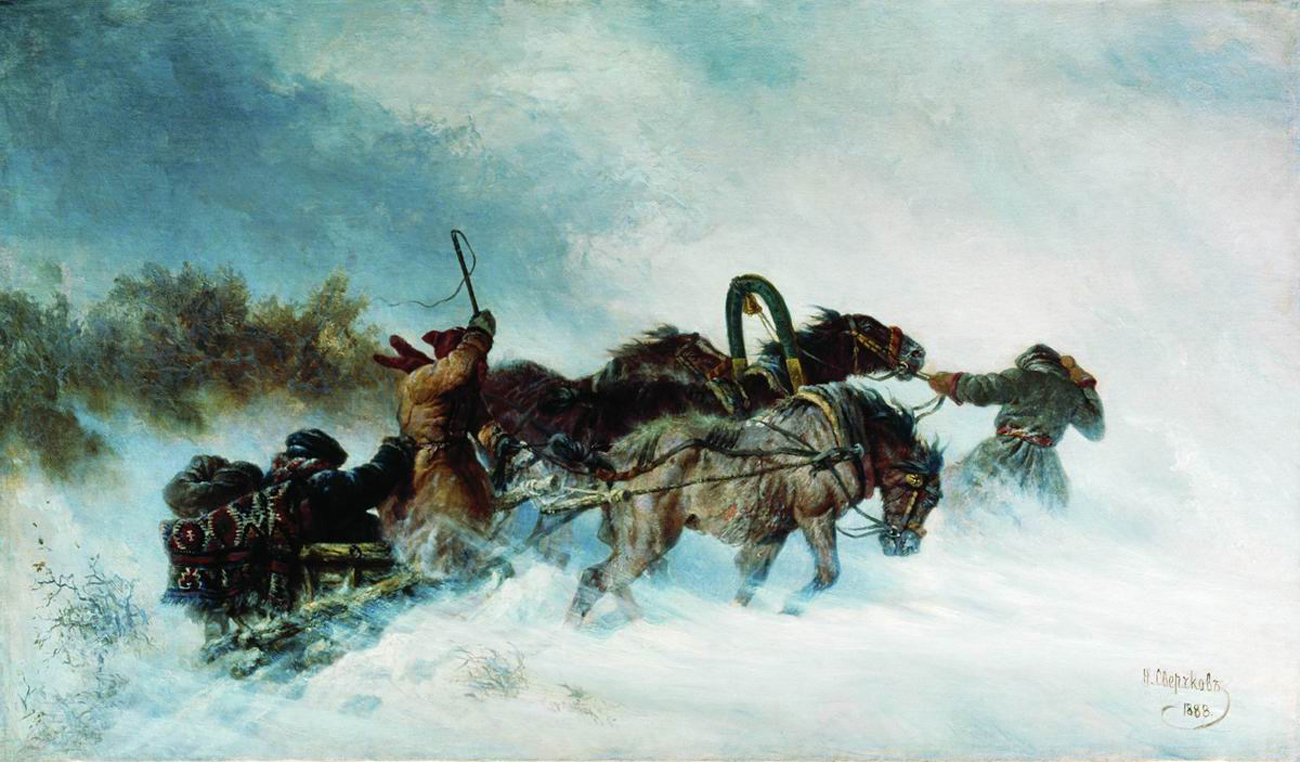
Winter troika. 1888.
Nikolai SverchkovEach season has inspired Russian writers and poets in its own way. But winter had a particular effect: the ringing silence, the glow of snow, the bells of a speeding troika, the creaking of blades and the crunch of steps - just about every Russian classic has described these.
The peculiarity of the Russian character manifests itself in the love of winter: dreaminess, thoughtfulness, detachment, existing somewhere "beyond," in some kind of fairytale half-sleep. At the same time, a constant readiness to fight the nature surrounding it - a blizzard, a snowstorm, the fierce chill - has tempered the Russian national disposition, making it stronger and complete.
And of course, winter is the time for Christmas tales and magical stories.
 Troika in winter. 1888 / Nikolai Sverchkov
Troika in winter. 1888 / Nikolai Sverchkov
A blizzard interferes
“Hardly had Vladimir passed from the outskirts of the town to the fields, however, when the wind rose up and whipped itself into such a storm that it became impossible to see anything. Within minutes the road was covered in snow; his surroundings disappeared in a dark and yellowish haze, through which white snowflakes flew. The sky and the ground merged. Vladimir, who found himself in a field, tried in vain to get back on the road; his horse stepped forward randomly over and over again, now making his way up a snow bank, now falling into a hole. Again and
(Translation by Josh Billings © 2009 Melville House Publishing)
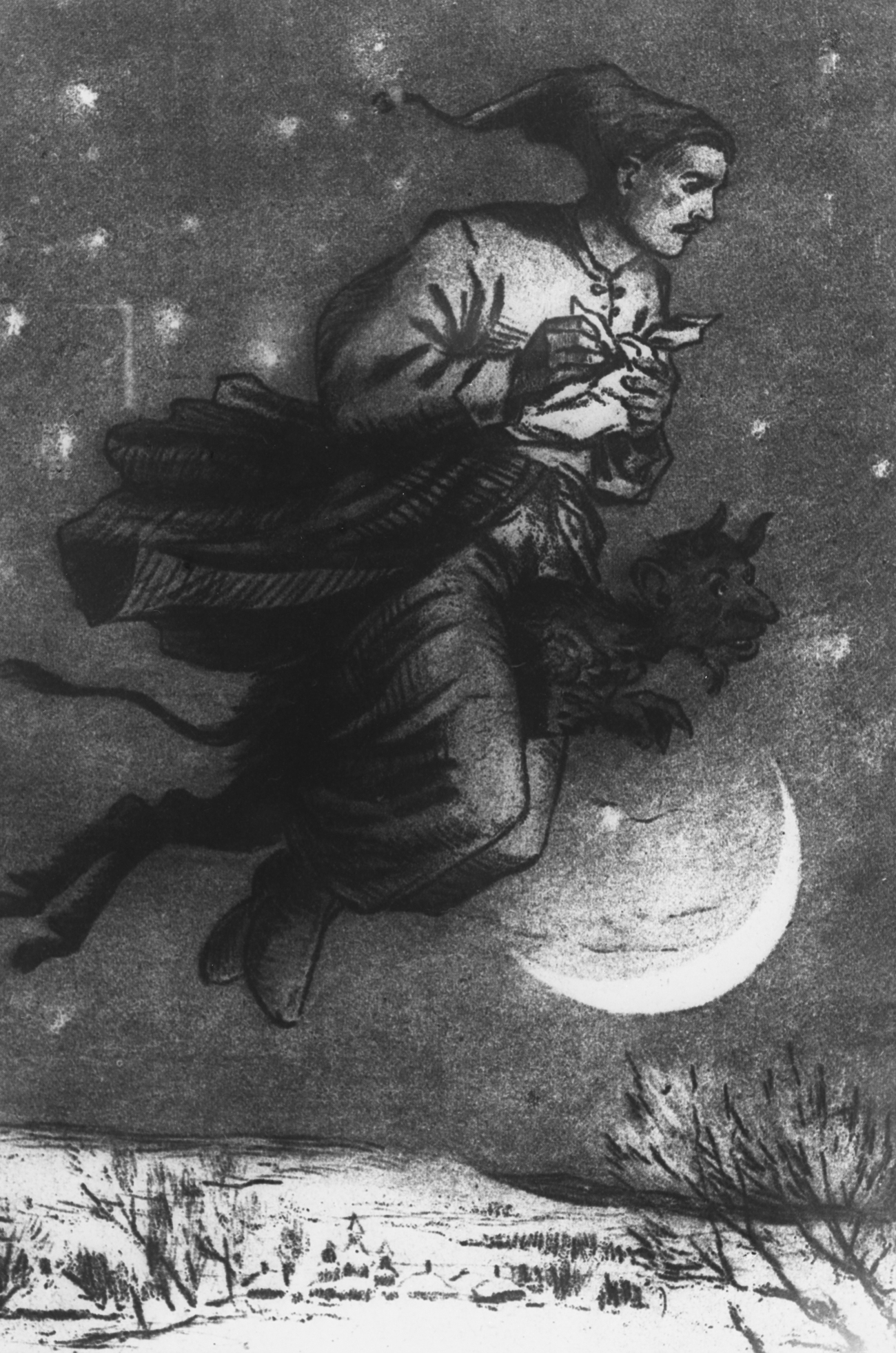 Illustrations to works of Nikolai Gogol's 'Christmas Eve,' USSR, 1949. Reproduction. / Source: Dmitry Chernov/TASS
Illustrations to works of Nikolai Gogol's 'Christmas Eve,' USSR, 1949. Reproduction. / Source: Dmitry Chernov/TASS
Resorting to the aid of evil spirits, the protagonist is able to conquer the heart of his haughty beloved.
“The last day before Christmas had just closed. A bright winter night had come on, stars had appeared, and the moon rose majestically in the heavens to shine upon good men and the whole of the
(Translated by George Tolstoy; published by London, J. Blackwood 1860)
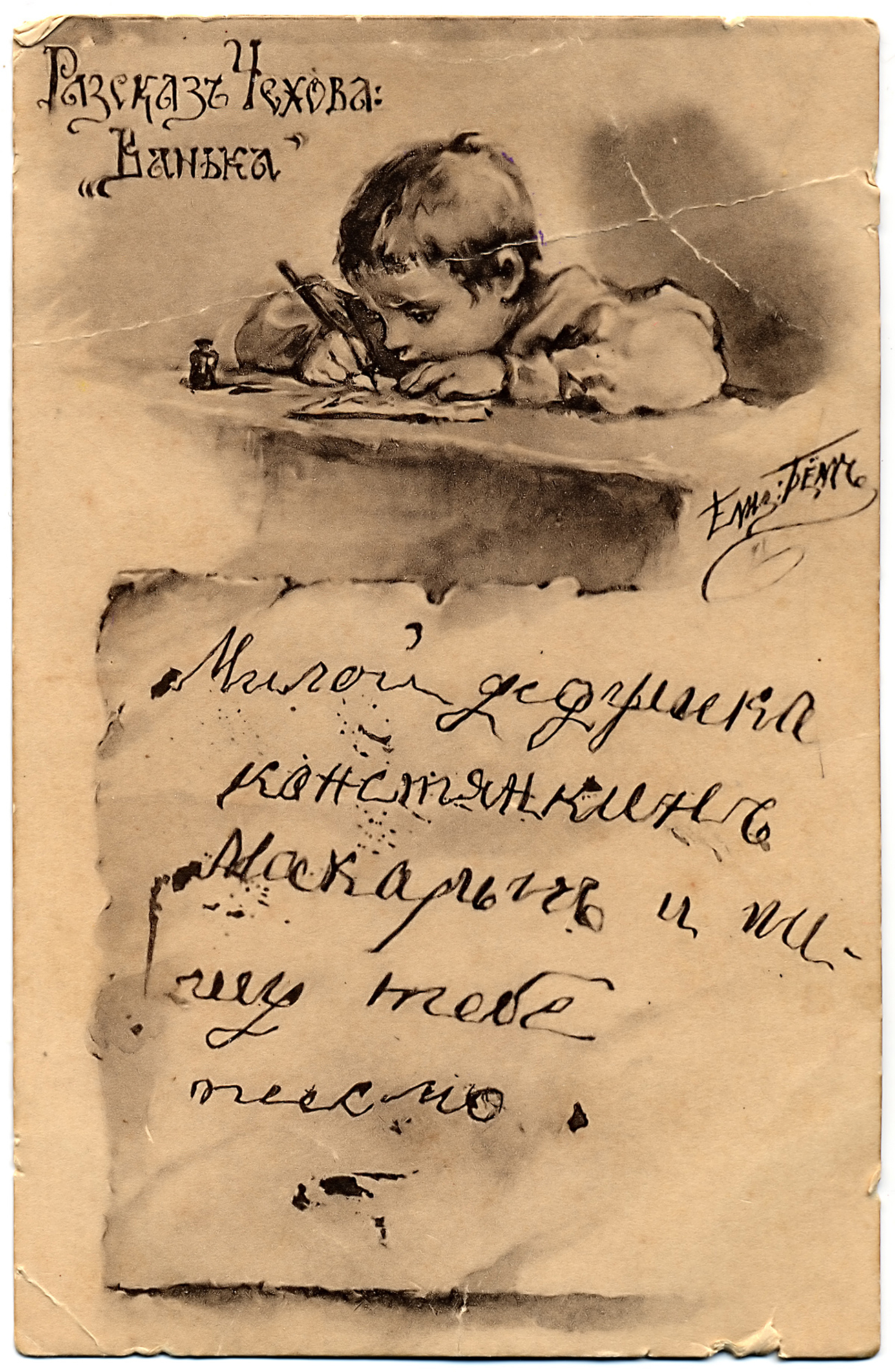 Pre-revolutionary postcard with illustration of Chekhov's short story 'Vanka.' / Source: Lori/Legion-Media
Pre-revolutionary postcard with illustration of Chekhov's short story 'Vanka.' / Source: Lori/Legion-Media
In another story that takes place on Christmas Eve, a nine-year-old orphan boy writes a letter to his grandfather in the village, asking him to take him away from Moscow, where he is treated poorly. But the boy forgets to write the address on the envelope, indicating just "To grandfather's village…"
“The air still, transparent. fresh. It was a dark night, but the whole village with its white roofs, the smoke rising from the chimneys, the trees, silver with rime, the snow-drifts, could be seen distinctly. The sky was sprinkled with gaily twinkling stars, and the Milky Way stood out as clearly as if newly scrubbed for the holiday and polished with snow....”
(Translated by Ivy Litvinov, published by Moscow: Foreign Languages Publishing House)
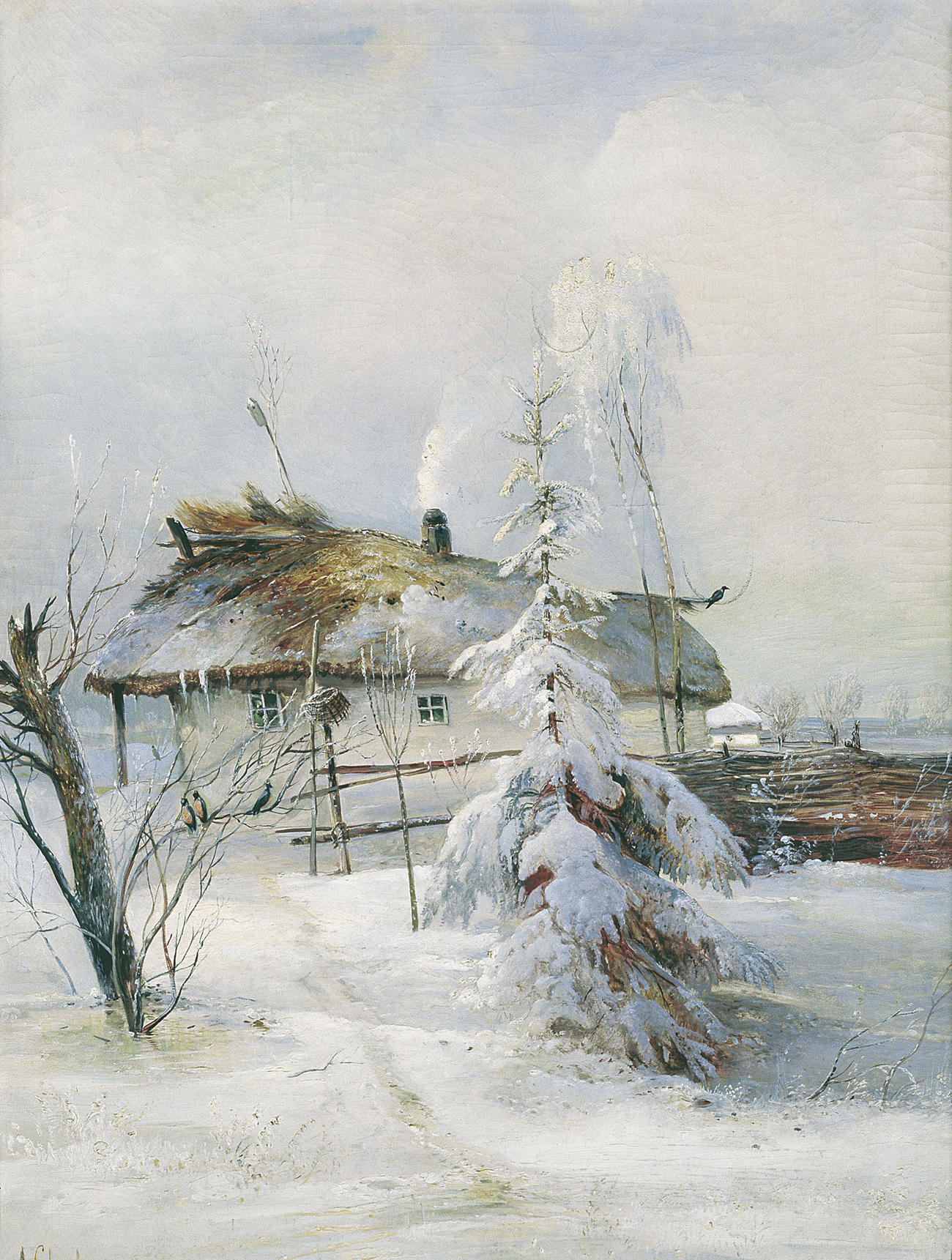 Alexei Savrasov. Winter / Source: Russky Museum, St. Petersburg
Alexei Savrasov. Winter / Source: Russky Museum, St. Petersburg
The master of landscape description, Turgenev also could not resist the beauty of the Russian winter.
“Six months passed. White winter had set in the cruel stillness of cloudless frosts, with its thick crunching snow, rosy hoarfrost on the trees, pale emerald sky, wreaths of smoke curling above the chimneys, steam emerging from momentarily opened doors, with those fresh faces which look bitten by cold, and the hurried trot of shivering horses. A January day was drawing to its close; the evening cold pierced keenly through the motionless air, and a brilliant sunset was rapidly dying away.”
(Translated by Richard Hare. © 1948 Hutchinson & Co., Publishers, Ltd.)
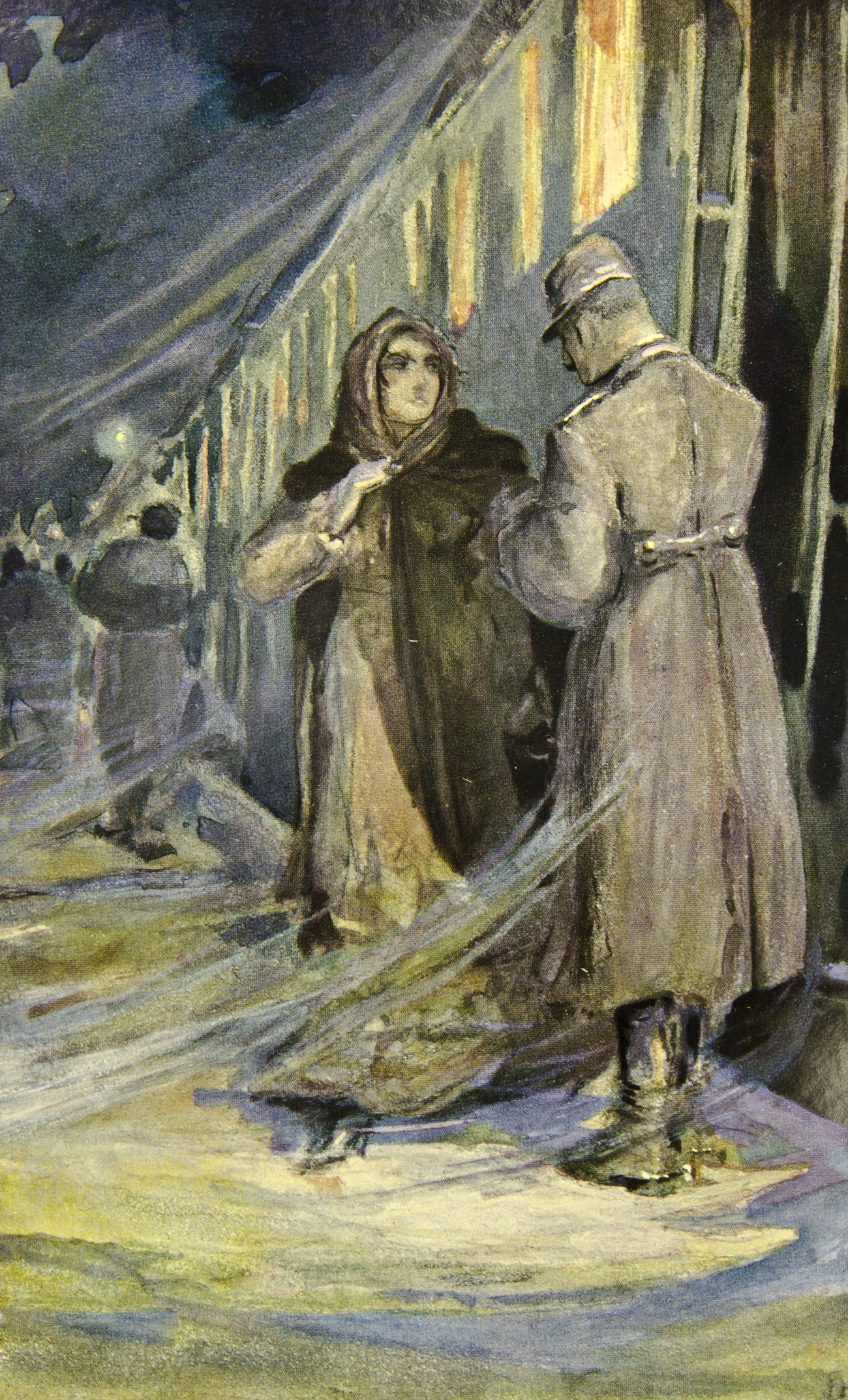 Leo Tolstoy 'Anna Karenina.' Illustration by artist Zahar Pichugin, publisher 'Partnership Sytin,' Moscow, Russia, 1914. / Source: Shutterstock/Legion Media
Leo Tolstoy 'Anna Karenina.' Illustration by artist Zahar Pichugin, publisher 'Partnership Sytin,' Moscow, Russia, 1914. / Source: Shutterstock/Legion Media
Tolstoy's raging nature admonishes man about his imminent hardships, expressing his internal condition and predetermining his fate. Thus, before her first encounter with Vronsky, Anna finds herself in a terrible blizzard.
“She opened the door and went out. The wind seemed as though lying in wait for her; with gleeful
"The racing tempest rushed whistling between the wheels of the carriages about the scaffolding, and round the corner of the station. The carriages, posts, people, everything that was to be seen was covered with snow on one
(The Harvard Classics Shelf of Fiction, 1917)
Read more: Leo Tolstoy’s ‘Anna Karenina’ turned into a musical
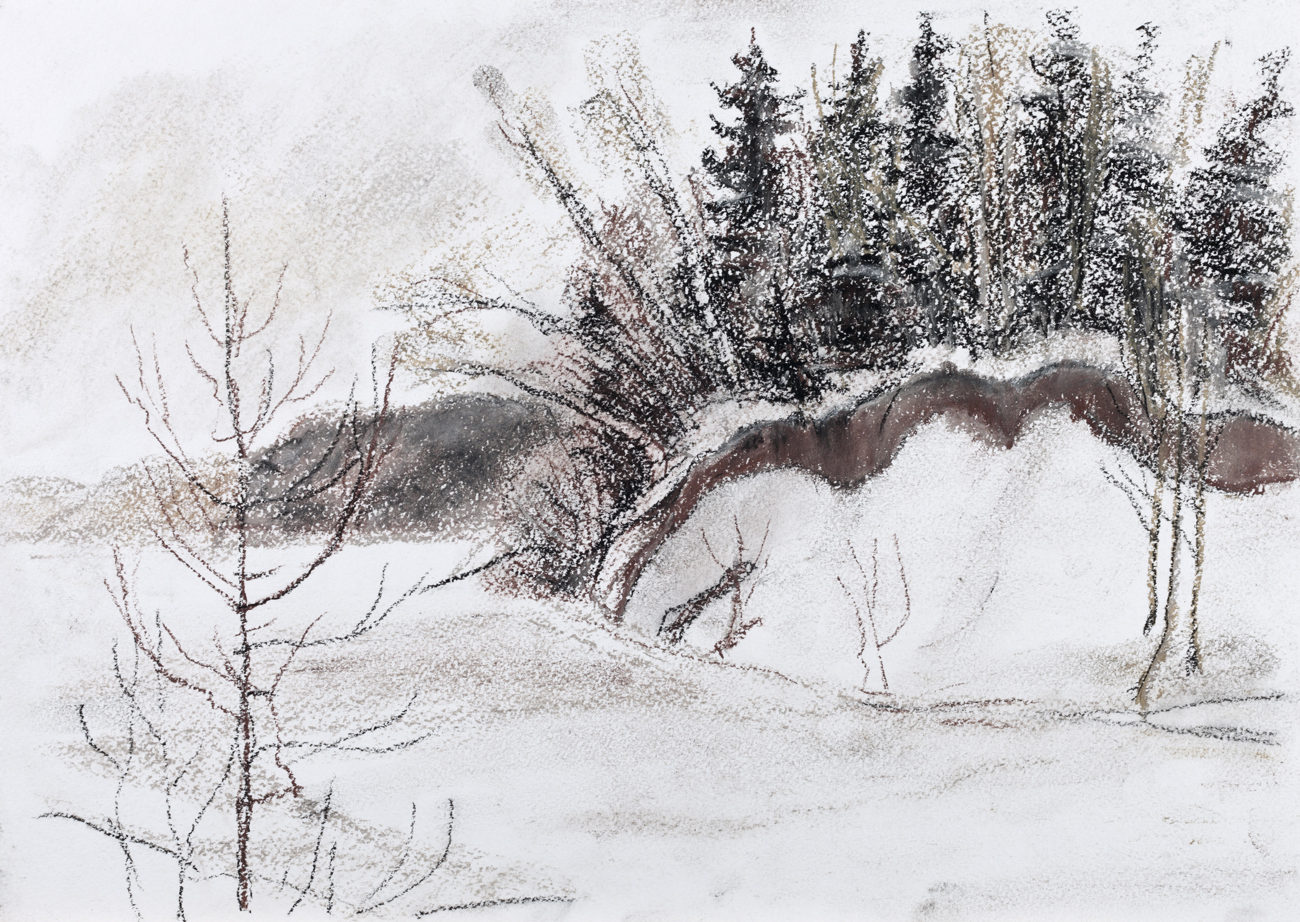 Abrupt coast of the river in winter / Source: Shutterstock/Legion Media
Abrupt coast of the river in winter / Source: Shutterstock/Legion Media
A boy named Nikita remembers how he once lived in the village. The novella depicts cold and tranquil childhood games.
“Nikita ran down the crunchy steps from the porch. At the bottom stood a brand-new pinewood sled with a bast rope attached to it. Nikita looked at it — it was solidly made, he tried it — it slid easily; he slung the sled over his shoulder, took up a spade which he thought he might need and
"Nikita turned to the right, towards the river, and tried to keep to the road, walking in other people's footprints <…>.
"On the steep banks of the Chagra
(Published by Moscow: Foreign Languages Publishing House, 1957)
 Sergei Vinogradov. Moscow Street, 1922. / Source: Getty Images
Sergei Vinogradov. Moscow Street, 1922. / Source: Getty Images
Pasternak's severe winter cold is contrasted with the warmth of human relations, which is embodied by the light of fire and candles that escapes through the windows. This light soothes us and gives us hope that spring will definitely arrive after winter.
“Only now, when she came out for the second time, did she take a look
"It was bitter cold. The streets were covered with a thick, black, glassy layer of ice, like the bottom of beer bottles. It hurt her to breathe. The air was dense with gray sleet and it tickled and pricked her face like the gray frozen bristles of her fur cape. Her heart thumping, she walked through the deserted streets past the steaming doors of cheap teashops and restaurants. Faces as red as sausages and horses’ and dogs’ heads with beards of icicles emerged from the mist. A thick crust of ice and snow covered the windows, and the colored reflections of lighted Christmas trees and the shadows of merrymakers moved across their chalk-white opaque surfaces as on magic lantern screens; it was as though shows were being given for the benefit of pedestrians.”
(1958 in authorized revisions to the English translation by Pantheon Books, Inc., New York, New York)
All rights reserved by Rossiyskaya Gazeta.
Subscribe
to our newsletter!
Get the week's best stories straight to your inbox